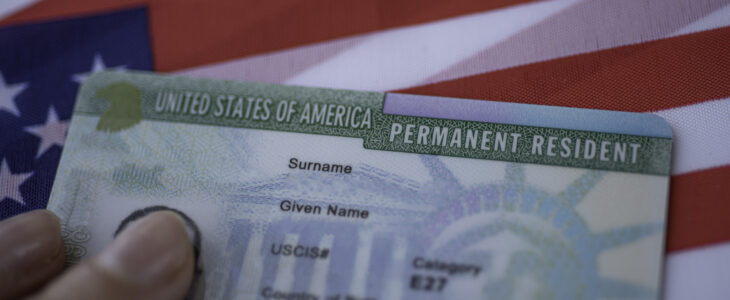Gaining permanent residency in the U.S. is more than just a legal process; it’s a life-changing step that opens the door to building a future for you and your family. Several pathways lead to obtaining a Green Card, each with its own criteria and processes. From family sponsorship and employment opportunities to seeking asylum or participating in the Diversity Visa Lottery, each option has unique requirements. By exploring these avenues, you can identify the best path toward securing your place in the United States and enjoying the benefits of permanent residency.
Family-Sponsored Green Cards
Family-sponsored Green Cards are a common and accessible pathway to permanent residency in the United States. If you have close relatives who are U.S. citizens or permanent residents, they can petition for you to join them in the country. Immediate relatives—such as spouses, unmarried children under 21, and parents of U.S. citizens—benefit from a straightforward process without numerical limitations, making it one of the fastest routes to a Green Card. Other family members, like siblings or adult children, may also be eligible, though these categories typically involve longer waiting periods due to annual caps on the number of visas available.
The process begins with your relative filing a petition on your behalf, followed by several steps that include background checks, interviews, and documentation. This pathway emphasizes the importance of maintaining strong family connections and underscores the value the U.S. places on family unity.
Employment-Based Green Cards
Employment-based Green Cards offer a valuable opportunity for skilled workers, professionals, and investors to establish permanent residency in the United States. These Green Cards are divided into several preference categories based on the type of work and the applicant’s qualifications. For instance, the EB-1 category is for priority workers with extraordinary abilities, outstanding professors or researchers, and multinational executives. The EB-2 category is for professionals with advanced degrees or exceptional abilities, while the EB-3 covers skilled workers, professionals, and other workers.
Florida’s diverse economy, with thriving industries in tourism, healthcare, and technology, provides ample opportunities for foreign nationals to qualify for employment-based residency. The process typically requires a U.S. employer to sponsor the applicant by filing a labor certification, ensuring that hiring a foreign worker won’t negatively impact American workers. Successfully navigating this complex process can lead to long-term career growth and stability in the U.S.
Asylum and Refugee Status
Asylum and refugee status protect individuals who face persecution in their home countries due to race, religion, nationality, political opinion, or membership in a particular social group. After one year of being granted asylum status, those who qualify for asylum can apply for permanent residency. The application process involves demonstrating a credible fear of persecution and undergoing a thorough interview with U.S. immigration authorities.
For those already in the U.S., asylum offers a crucial lifeline, allowing them to remain in the country legally while their case is reviewed. Refugee status is granted to individuals outside the U.S. who have been identified as needing protection. Both pathways ultimately lead to the possibility of securing a Green Card and rebuilding a life in safety.
Diversity Visa Lottery
The Diversity Visa Lottery, commonly known as the Green Card Lottery, offers a unique path to permanent residency for individuals from countries with low immigration rates to the U.S. Each year, up to 55,000 visas are randomly awarded to eligible applicants. The process is straightforward but highly competitive, as millions of people apply annually. Applicants must meet specific eligibility criteria, including education or work experience requirements. Winning the lottery allows individuals and their families to apply for Green Cards, providing a rare opportunity to establish a new life in the United States.
Other Pathways
Beyond family, employment, asylum, and the Diversity Visa Lottery, several other pathways to permanent residency are available. For example, the EB-5 visa offers a route through substantial investment in U.S. businesses, while U visas are designed for crime victims who assist law enforcement. Additionally, special immigrant visas are available for religious workers, international broadcasters, and other specific groups. Each of these options has unique requirements and benefits, allowing individuals with diverse backgrounds and circumstances to explore opportunities for obtaining a Green Card and securing their future in the United States.
Taking the Next Step to Permanent Residency
At Central Justice, we guide you through the complexities of obtaining permanent residency, whether you’re pursuing a family-sponsored Green Card, an employment-based visa, or any other pathway. Our dedicated team is here to support you, ensuring a smooth and efficient process. Contact us today to discuss your options and take the next step toward securing your future in the United States.


